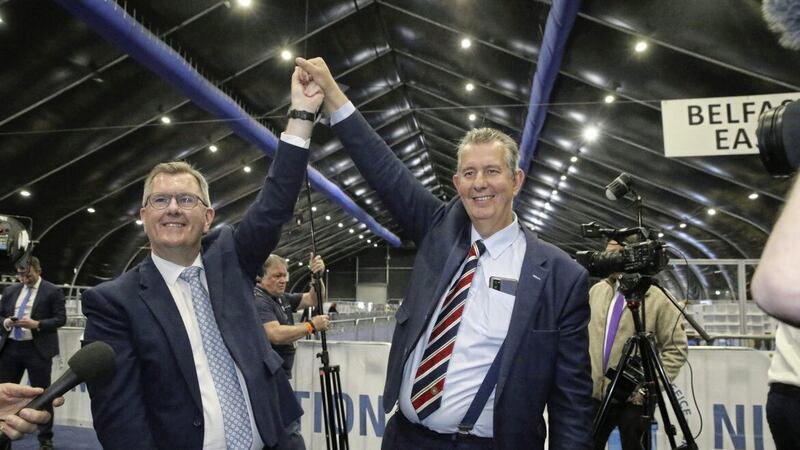By the time you read this—and I’m writing it on Wednesday afternoon—our secretary of state, Chris Election-Hazard, may have decided what he’s doing about the election that was supposed to have been called precisely one minute after midnight last Friday.
In fairness to him he did make a statement 960 minutes after midnight, when he told a press conference that he still intended to call a snap election, albeit not so snappy that he wanted to give a date anytime soon.
He's in a bind. If he doesn’t call an election then he’s going to look like an absolute idiot (although I think that particular ship, with full sails billowing, has already left the harbour). And if he does call one then the likelihood is that it will end up with the same outcome as May and a continuation of the ongoing impasse. It was suggested to me that even that sort of result wouldn’t necessarily be catastrophic, because ‘you’d just be back at square one.’
No, you wouldn’t. You would be nowhere near square one at that point. The minute (however long it is past midnight) you call an election a permafrost settles over unionism and republicanism. They play only to their own bases and draw new this-far-and-no-further lines in the concrete (sand leaves too much wriggle room for the extremes on both sides). Things are said which can’t be unsaid and offence—deliberate or accidental—is given; the sort of offence which, like the crocodile comment in 2017, can have a significant impact on the electoral gap between the big two parties. And when the election is over it requires a blowtorch, wielded by both governments, to melt the dynamics back to where they were before the election was called.
At this point an election still favours Sinn Féin. Its base is steady, the challenge from the SDLP remains negligible and fears of some sort of backlash to Michelle O’Neill’s ‘there was no alternative’ comments re the IRA campaign have disappeared altogether. It will also be helped by the growing perception outside unionist circles that serving as deputy first minister to a nationalist first minister is more of a problem for the DUP than the protocol. Indeed, Jim Allister has already challenged the DUP and UUP to confirm they wouldn’t serve as ‘bridesmaids’ to Sinn Féin: although he doesn’t seem quite so clear when it comes to the possibility of Sinn Féin serving as ‘bridesmaid’ to the DUP.
The DUP, meanwhile, has just a single priority: increasing its May mandate. I think it has accepted it’s unlikely to nudge into first position again, but it would like to win back a considerable chunk of that vote which it lost to the TUV last time. Yet that remains easier said than done. Allister is playing a canny game, tapping into that unionist/loyalist vote which fears the DUP would ‘roll over’ if it got the chance and he’s encouraging the belief that the TUV is the only reliable brake on roll over politics. He will be assisted by that growing section of old and new-generation loyalism which would, at this stage, much prefer the final collapse of the assembly.
I’m not sure how the SDLP will fare, although it will probably take more losses as some of its base shifts to Sinn Féin to ensure that it remains the largest party, with dibs on the first minister post. A recent LucidTalk poll on the response of nationalism to O’Neill’s IRA comments indicated the older members of the SDLP were more concerned about it than the younger base. Which is, of course, good news for Sinn Féin, which seems confident it can tap into that younger vote.
The UUP, on the other hand, is going nowhere unless it puts noticeably clear water between itself and the DUP. There’s no point in taking pot shots at the DUP’s ‘stupidity and culpability’ on the protocol or nominating a speaker to reboot the assembly each time the assembly has been called, if the party then seems to row in behind the DUP at the election and remains as waffly on whether it would nominate a deputy first minister to Sinn Féin after the election. That sort of ambiguity encourages a drift of its vote to the DUP at one end and a drift to Alliance at the other. To survive and grow it needs to be very clear on what, exactly, it is.
Alliance did well in May and also got lucky in at least a couple of seats. It needs that luck to continue. And if the election turns out to be as nasty as I think it’s likely to be then it will come under a different type of pressure from unionists who detest its ambiguity on the union, as well as nationalists who regard its support for the constitutional status quo as just ‘unionism in another form.’ That said, I’d be incredibly surprised if it didn’t retain its position as the third party.
All of which means an election is unlikely to change anything: although an increase of the DUP and Sinn Féin positions at the expense of Alliance, UUP and SDLP—the middle ground in other words—might spook horses in London and Dublin.
And they really don’t want spooked horses spoiling the 25th anniversary hoopla next April by crashing into the tables and pooping on manicured lawns during back-slapping garden parties.








